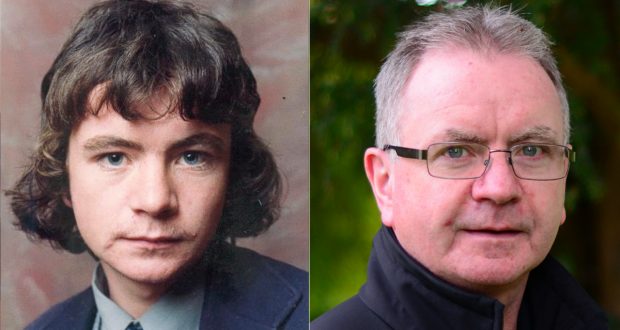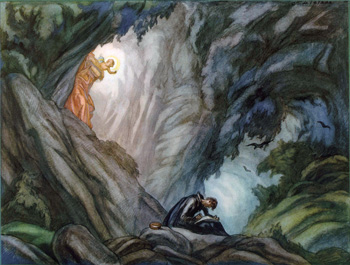From Conversation to Conversion: International Symposium on Ignatian Spirituality
1/7/2023-3/7/2023 Continue reading “From Conversation to Conversion : International Symposium on Ignatian Spirituality”
From Conversation to Conversion: International Symposium on Ignatian Spirituality
1/7/2023-3/7/2023 Continue reading “From Conversation to Conversion : International Symposium on Ignatian Spirituality”
All of a sudden, 2019 became a very difficult year for people in Hong Kong. Shocked by the unexpected political and social crisis, many were concerned for the welfare of young people. Xavier House Ignatian Spirituality Centre, a Jesuit retreat house located on the small island of Cheung Chau, reached out to the city and organised day retreats for young people. Continue reading “Day retreats for young people in Hong Kong”
Fr Brendan McManus SJ, who works in the area of spirituality and spiritual accompaniment in the Irish Province, says he has had a great life as a Jesuit. “The most valuable insights have come from the Ignatian training I have received, how to reflect on experience and make good decisions”, he shares.
From this perspective, he writes to his 15-year-old self 15 “rules of thumb” he has found useful in his life. All of them have Ignatian references. For example, in tip #2, he takes cue from St Ignatius that God is in our deepest desires, not the superficial ones. Working in the computer industry prior to joining the Jesuits, he acquired all the material possessions and status he thought he desired, but he found it to be “a desolatingly empty experience” and prompted a search for his “true vocation as a priest”.
But finding one’s true vocation does not mean living a perfect life. In tip #4, Fr McManus cautions against pursuing idealism and perfection so much that we beat ourselves up and agonise over its unattainability. “In Ignatian Spirituality there is spelled out the terrible dilemma of life that perfection and idealism, while seemingly good things, can often lead to disillusionment and despair… [T]here is normally a third option, or middle way, that threads a course between extremes.”

Fr McManus remembers that as a Boy Scout, he was taught there is always enough in your environment to solve the problem. “It’s never going to be ideal but there are options and decisions to be made… Therefore, instead of wishing it were different, look around and see what you can use.” In other words, instead of wishing for perfection, “Bloom where you are planted” (tip #7).
Indeed, there is no panacea for all of life’s troubles. “In my work as a spiritual director and hearing people talk about their lives, I often hear of the illusive search for the ‘silver bullet’ or magic ingredient that will suddenly solve all life problems”, Fr McManus shares in tip #8. In reality, the solutions are often mundane and process based, requiring effort and commitment on our part. Referencing St Ignatius: “God normally does not appear in the miraculous but through human processes; ‘everyday’ miracles.”
Do not be afraid to ask for help. In fact, “Asking for help is the greatest wisdom” (tip #10). “Often the obstacle is pride, independence and being afraid to be seen as weak or needing help. Ignatian wisdom has a really useful rule of thumb: you need to deliberately act against those negative impulses that stop us from getting the right help”, he says. Actively seeking out support makes life a lot more bearable.
“There are not limitless possibilities but possibilities within the limits” (tip #12). Fr McManus has discovered that knowing your limits, such as how far you can go without rest and food, can help you achieve significant goals of pilgrimage, collaborations and meaningful friendships. Walking the Camino, he says, is a real teacher of humility and respect for limits. “Hearing people, mainly young men, boast how they will walk twice as long and beat the ‘record’, never fails to amuse me as I was there once and have come to see the folly of pride!”
Finally, Fr McManus gives the most important tip to his young self and to each of us: “Let life teach you.” We have no control over the cards we are dealt but we have a choice about how we approach problems and opportunities. As Ignatian Spirituality teaches us, we can find God in the mess. “Though the stakes are very high and consequences are real and imminent, there is normally a way through and hope is our guiding light.”
To read all of Fr McManus’ “15 Ignatian rules of thumb”, click here.

Finding God in All Things
Throughout much of the world, the Jesuits are best known for their colleges, universities, and high schools. But in a time when many are searching for greater meaning, another aspect of Jesuit life is attracting wide interest. And that is the unique spirituality introduced nearly 500 years ago by St. Ignatius Loyola, founder of the Jesuits.
Ignatius was a Spanish soldier and aristocrat who discerned his calling after suffering nearly fatal wounds on the battlefield. He established the Society of Jesus in 1540, instructing the early Jesuits — to go out and “find God in all things.” That is the signature spirituality of the Jesuits.
Ignatian spirituality is grounded in the conviction that God is active in our world. As the great Jesuit paleontologist Pierre Teilhard de Chardin wrote: “God is not remote from us. He is at the point of my pen, my pick, my paintbrush, my needle — and my heart and my thoughts.” The spiritual path laid out by Ignatius is a way of discerning God’s presence in our everyday lives. And doing something about it.
The Jesuits have a handbook for this search. It is The Spiritual Exercises of St. Ignatius Loyola, composed by the saint before he was even a priest. Often described as Ignatius’s greatest gift to the world, these exercises unfold a dynamic process of prayer, meditation, and self-awareness. The basic thrust is to make us more attentive to God’s activity in our world, more responsive to what God is calling us to do. Ignatian spiritual directors accompany or guide people through the exercises in retreat houses, parishes, and other settings.
One of the most popular Ignatian exercises is the Daily Examen. It’s a spiritual self-review that involves prayerfully recollecting moments during the day and reflecting on how God was present at those times, followed by a decision to act in some way. The Examen is concrete: It focuses your mind on segments of time (no more than a day, preferably), and the feelings that stirred within you, at those specific moments. Walk through the five steps of the Examen here.
There are a number of outstanding resources devoted to Ignatian spirituality. Sacred Space is a popular prayer site run by the Irish Jesuits, and Jesuitprayer.org was created by the Chicago-Detroit Province of the Society of Jesus to provide daily online prayers and facilitate prayer requests. In addition, The Jesuit Post, founded by a group of Jesuit scholastics (those in the process of religious formation), provides a contemporary look at Jesus, politics, and pop-culture in our secular age.
Ignatian spirituality is not merely an inward journey, much less a self-absorbed one. It aims to bring people closer to God and more deeply into the world — with gratitude, passion, and humility — not away from it. Ignatius called on the Jesuits to be “contemplatives in action.” Today, Jesuits and their lay collaborators work with people in many walks of life, such as education and business. They help nurture “men and women for others.”